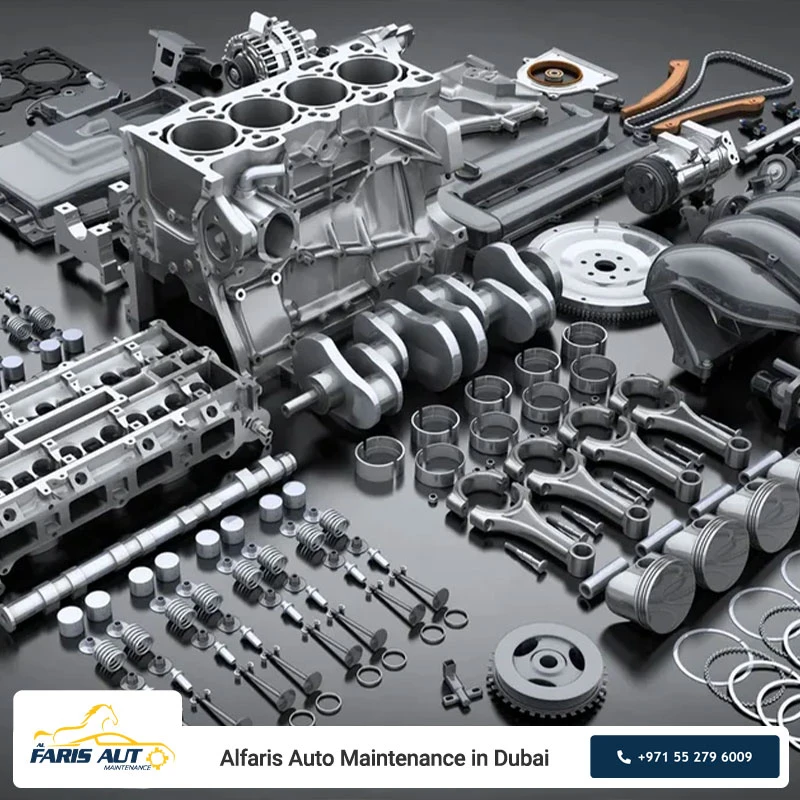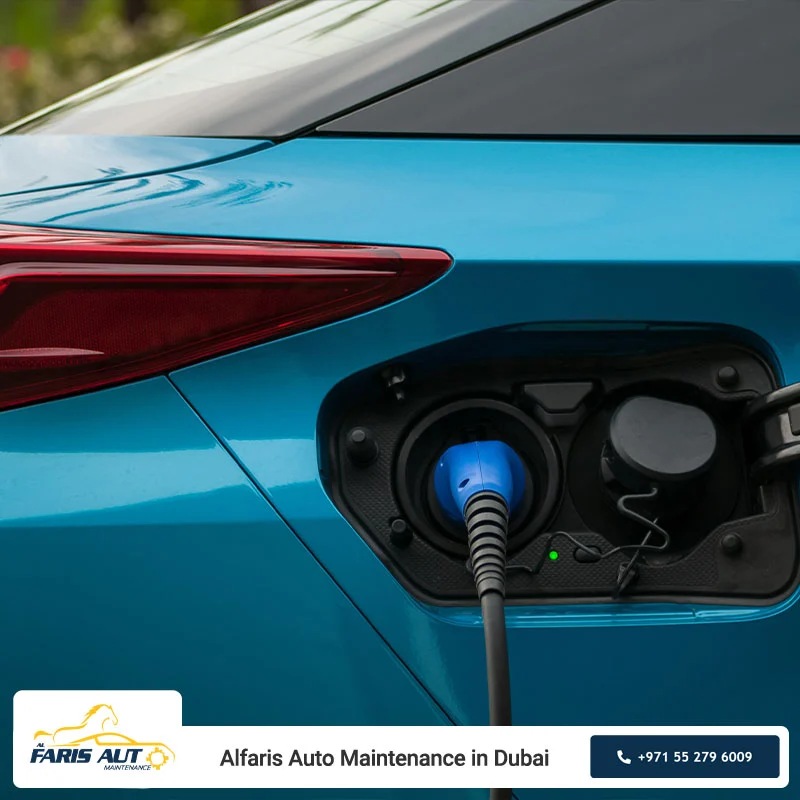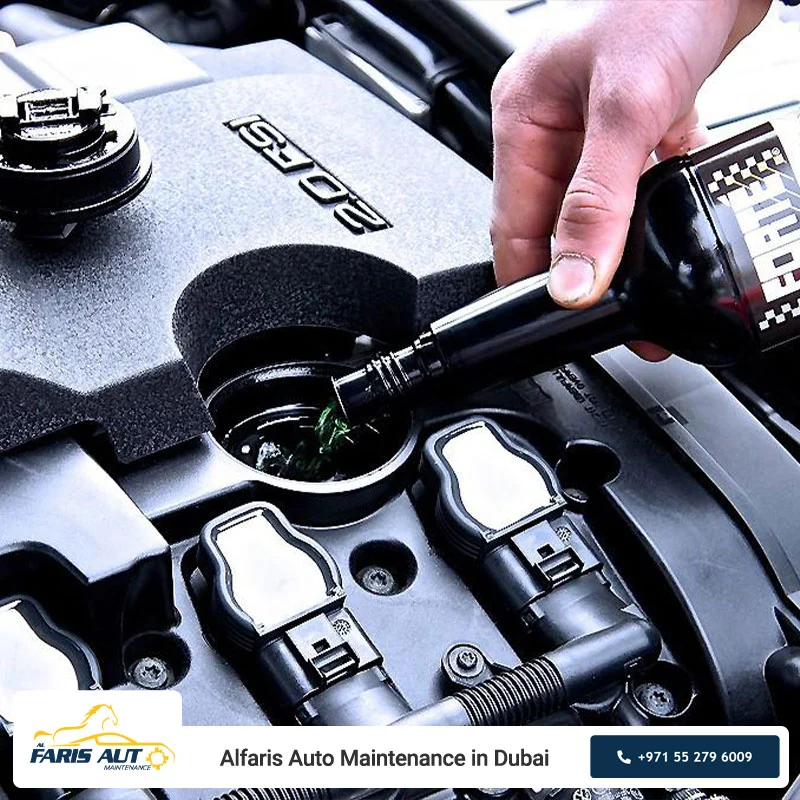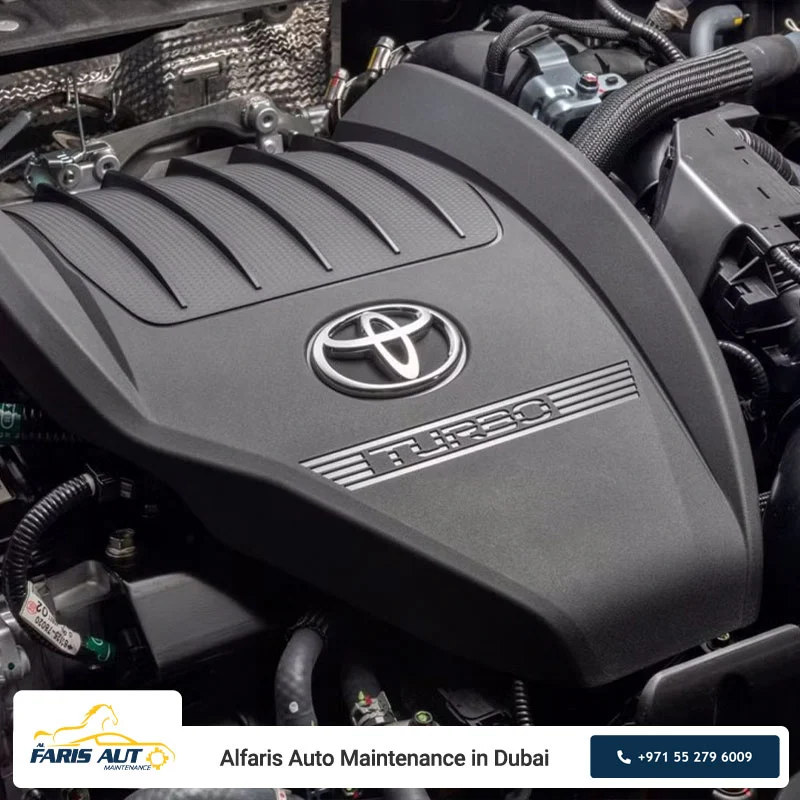The reasons why a car won’t start are generally divided into two main categories: The first is when the car cranks but does not start — meaning the starter motor turns and you hear the cranking sound, but the engine fails to ignite. The second category is when the car does not crank at all — no starter noise is heard, and there is likely no electrical power reaching the engine.
Starting the car is one of the most essential and basic needs for any driver. Without the car turning on, movement, commuting, and daily tasks become very difficult. However, sometimes the car fails to start for various reasons, which can be frustrating and even dangerous, especially if it happens at an inconvenient time or place. So, the main question is: Why won’t the car turn on?
In this article from Alfaris Auto in Dubai, we will thoroughly examine the most important reasons why a car won’t start and provide practical, effective solutions for each. By understanding these issues precisely, you can diagnose the problem faster and, if possible, fix it yourself or with the help of a professional mechanic.
- Car Does Not Crank and Won’t Start
- Car Cranks But Won’t Start
- Preventive Tips to Avoid Starting Problems
Car Does Not Crank and Won’t Start
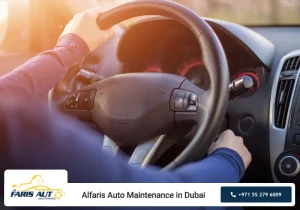
Cranking means the starter motor is turning the engine over, but starting means the engine ignites and fuel is properly supplied. Sometimes the car cranks but does not start due to problems in the fuel system, electrical system, or ignition. Signs of cranking without starting include hearing the starter motor but the engine not firing up and the engine warning lights remaining off.
Dead Car Battery
One of the most common reasons why a car won’t start — and why you might ask, “Why won’t the car turn on?” — is a dead battery. The car battery supplies the necessary power to crank the engine and start it. Batteries can become dead due to prolonged use, discharge, or internal faults, leading to insufficient power supply. Symptoms of a dead battery include weak cranking power, sudden shutdown of electrical systems, and a battery warning light on the dashboard. To fix this, you can recharge the battery with a charger or replace it if it’s faulty.
Faulty Alternator and Wiring Issues
The alternator charges the automative battery and powers the electrical system while the engine runs. A faulty alternator will fail to charge the battery, causing it to die. Additionally, wiring between the battery and alternator can suffer from corrosion, breaks, or short circuits, preventing adequate power delivery. In these cases, the car won’t crank, electrical systems are weak, and the engine won’t start. A professional mechanic should inspect and repair the alternator and wiring.
Steering Wheel Lock Engaged

The steering lock is a safety feature that sometimes prevents the car from starting. When engaged, it can stop the ignition key from turning fully, causing the car not to start. This usually happens if the steering wheel was turned after parking. To release the lock, gently turn the key while moving the steering wheel left and right until the lock disengages.
Dead Key Fob Battery
In modern cars with keyless start systems, the remote key fob battery plays a crucial role in unlocking the car and disabling the anti-theft system. If the key fob battery is dead or weak, the car may not crank or start. The simplest fix is to replace the key fob battery.
Starter Motor Failure
The starter motor physically turns the engine to start it. A faulty starter can cause the car not to crank or to crank without the engine starting. Signs include a clicking noise when turning the key but no engine turnover. Starter replacement by a skilled mechanic is recommended. For repair consultations in Dubai, you can contact Alfaris Auto.
Blown Fuse
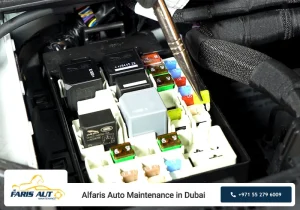
Fuses protect the car’s electrical circuits by breaking the circuit if the current is too high. A blown fuse related to the starter or fuel ump can prevent the car from starting. Checking and replacing blown fuses according to the car’s manual can quickly resolve the issue.
Ignition Switch Failure
The ignition switch sends power to the starter and other systems. A faulty switch can prevent sufficient power from reaching the engine, even when the key is turned. Symptoms include no cranking, intermittent power loss, or warning lights flickering. Repair or replacement should be done by a professional.
Fuel Pump Relay Failure
The fuel pump relay powers the fuel pump. If it fails, the pump won’t operate, preventing fuel delivery and causing the car not to start. This can also cause the car not to crank. Testing and replacing the relay if faulty will help resolve this issue.

Contact with AlFaris
You can contact our experts for free consultation, discuss the type of problem or service you are requesting, and arrange for your presence.
Car Cranks But Won’t Start
One of the most frustrating problems for any driver is when the car cranks but does not start. Understanding the reasons why a car won’t start can help diagnose the issue quickly and avoid more serious damage. As mentioned, the two main scenarios are: the car doesn’t crank and the car cranks but won’t start (we have already discussed the first).
When the car cranks but fails to start, possible reasons include lack of fuel, faulty spark plugs or ignition coils, clogged fuel filters, or timing belt issues. If the car doesn’t crank, problems like a dead battery, faulty starter, blown fuses, or steering lock are usually involved. Engine-related issues may also be the cause, and for car engine repairs in Dubai, Al Faris Auto offers expert services. Below, we explore the causes of a car cranking but not starting and practical solutions for each.
Insufficient Fuel in the Tank
Having enough fuel in the tank is one of the simplest yet most critical prerequisites for starting the car. If the tank is empty or near empty, the engine won’t run. Sometimes, due to a faulty fuel gauge, the driver may not realize the fuel is low, leading to the question: Why won’t the car turn on? To avoid this, always check fuel levels before driving and keep the tank at least half full.
Some drivers habitually run the tank down to the last drop, which can cause sediment at the bottom of the tank to enter the fuel system, clogging filters and damaging the fuel pump, as we will discuss next.
Clogged Fuel Filter
The fuel filter cleans the fuel before it reaches the engine. A clogged filter reduces fuel pressure, causing the car to crank but not start. Symptoms include reduced acceleration, cranking without starting, and sudden stalling. Regular replacement of the fuel filter is essential. Using fuel until the last drop often leads to sediment buildup and filter clogging.
Faulty Fuel Pump
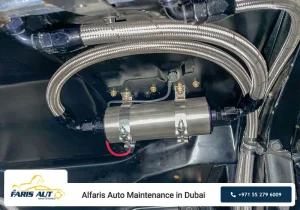
The fuel pump transfers fuel from the tank to the engine. A malfunctioning fuel pump, a common cause of no-start issues, results in no fuel delivery. Symptoms include unusual noises from the tank, cranking but no start, and stalling while driving. Testing and replacing the pump as needed is crucial.
Worn Bearings
Bearings enable smooth rotation of the crankshaft and camshaft. Damaged bearings increase friction and disrupt engine operation, potentially preventing the car from starting. Loud knocking noises or engine vibrations may indicate bearing failure, requiring specialized repair. Residents in Dubai can visit Alfaris Auto for engine repairs, including Toyota engine repair.
Faulty Spark Plugs and Ignition Coils
Spark plugs create the spark needed for fuel combustion, and ignition coils supply power to the plugs. Failure of either can cause starting problems or rough running. Symptoms include hard starting, engine shaking, and power loss. Replacing spark plugs and coils with genuine parts is the best solution.
Injector Problems
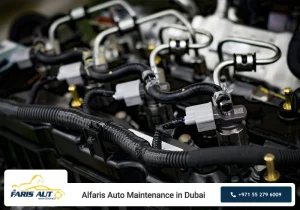
Fuel injectors spray fuel into the combustion chamber in a fine mist. Blocked or faulty injectors cause improper fuel delivery, leading to starting issues. Symptoms include engine shaking, increased fuel consumption, and cranking without starting. Cleaning or replacing injectors by a specialist is recommended.
Use of Low-Quality Engine Oil
One answer to the question “Why won’t the car turn on?” can be the type of engine oil used. Poor-quality oil increases friction and wear, eventually damaging the engine and causing start failures. Always use engine oil that meets the manufacturer’s standards and change it regularly. For more information, see our article on the What are the functions of Transmission Fluid?
Broken Timing Belt
The timing belt synchronizes the movement of engine components. A broken timing belt causes the engine to stop completely and prevents starting. This usually happens suddenly and requires immediate replacement by a mechanic.
Incorrect Timing Belt Adjustment

A loose or improperly adjusted timing belt disrupts the coordination between the camshaft and crankshaft, preventing the engine from running. This problem often produces unusual engine noises and requires belt adjustment or replacement.
Electrical System Failure Including ECU
The ECU (Engine Control Unit) is the brain of the car’s engine management system. ECU faults disrupt engine operation and can cause no-start conditions. Symptoms include cranking without starting, check engine light activation, and abnormal engine behavior. ECU repair or replacement should be done by a specialist. For more details, refer to our article on the What Does the ECM Do in a car?
Preventive Tips to Avoid Starting Problems
To prevent issues with your car not starting, always keep the following in mind:
- Regularly check and replace the battery as needed.
- Keep up with scheduled maintenance, including timely replacement of filters, spark plugs, and timing belts.
- Use high-quality fuel and engine oil.
- Consult a specialist promptly if you notice any electrical or fuel system issues.
- Replace the remote key battery on time in keyless start vehicles.
The reasons why a car won’t start can be diverse and sometimes complex, ranging from simple issues like a dead battery or empty fuel tank to sensitive problems like timing belt or ECU failure. Understanding these causes and how to diagnose them helps you make the best decisions in emergencies and restore your car to normal operation faster.
In any case, consulting a professional mechanic and visiting reputable service centers like Al Faris Auto in Dubai is the best way to resolve car starting problems effectively.

